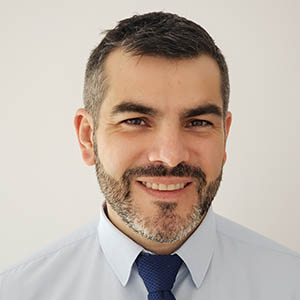Transform retail operations with Zebra’s retail technology solutions, featuring hardware and software for improving inventory management and empowering teams.
Streamline operations with Zebra’s healthcare technology solutions, featuring hardware and software to improve staff collaboration and optimise workflows.
Enhance processes with Zebra’s manufacturing technology solutions, featuring hardware and software for automation, data analysis, and factory connectivity.
Zebra’s transportation and logistics technology solutions feature hardware and software for enhancing route planning, visibility, and automating processes.
Zebra's hospitality technology solutions equip your hotel and restaurant staff to deliver superior customer and guest service through inventory tracking and more.
Zebra's market-leading solutions and products improve customer satisfaction with a lower cost per interaction by keeping service representatives connected with colleagues, customers, management and the tools they use to satisfy customers across the supply chain.
Empower your field workers with purpose-driven mobile technology solutions to help them capture and share critical data in any environment.
Zebra's range of mobile computers equip your workforce with the devices they need from handhelds and tablets to wearables and vehicle-mounted computers.
Zebra's desktop, mobile, industrial, and portable printers for barcode labels, receipts, RFID tags and cards give you smarter ways to track and manage assets.
Zebra's 1D and 2D corded and cordless barcode scanners anticipate any scanning challenge in a variety of environments, whether retail, healthcare, T&L or manufacturing.
Zebra's extensive range of RAIN RFID readers, antennas, and printers give you consistent and accurate tracking.
Choose Zebra's reliable barcode, RFID and card supplies carefully selected to ensure high performance, print quality, durability and readability.
Zebra's rugged tablets and 2-in-1 laptops are thin and lightweight, yet rugged to work wherever you do on familiar and easy-to-use Windows or Android OS.
With Zebra's family of fixed industrial scanners and machine vision technologies, you can tailor your solutions to your environment and applications.
Zebra’s line of kiosks can meet any self-service or digital signage need, from checking prices and stock on an in-aisle store kiosk to fully-featured kiosks that can be deployed on the wall, counter, desktop or floor in a retail store, hotel, airport check-in gate, physician’s office, local government office and more.
Discover Zebra’s range of accessories from chargers, communication cables to cases to help you customise your mobile device for optimal efficiency.
Zebra's environmental sensors monitor temperature-sensitive products, offering data insights on environmental conditions across industry applications.
Zebra's location technologies provide real-time tracking for your organisation to better manage and optimise your critical assets and create more efficient workflows.
Enhance frontline operations with Zebra’s AI software solutions, which optimize workflows, streamline processes, and simplify tasks for improved business outcomes.
Empower your frontline with Zebra Companion AI, offering instant, tailored insights and support to streamline operations and enhance productivity.
The everything you need to rapidly and cost effectively develop high-performance AI vision applications on Zebra mobile computers.
Zebra Workcloud, enterprise software solutions boost efficiency, cut costs, improve inventory management, simplify communication and optimize resources.
Keep labour costs low, your talent happy and your organisation compliant. Create an agile operation that can navigate unexpected schedule changes and customer demand to drive sales, satisfy customers and improve your bottom line.
Drive successful enterprise collaboration with prioritized task notifications and improved communication capabilities for easier team collaboration.
Get full visibility of your inventory and automatically pinpoint leaks across all channels.
Reduce uncertainty when you anticipate market volatility. Predict, plan and stay agile to align inventory with shifting demand.
Drive down costs while driving up employee, security, and network performance with software designed to enhance Zebra's wireless infrastructure and mobile solutions.
Explore Zebra’s printer software to integrate, manage and monitor printers easily, maximising IT resources and minimising down time.
Make the most of every stage of your scanning journey from deployment to optimisation. Zebra's barcode scanner software lets you keep devices current and adapt them to your business needs for a stronger ROI across the full lifecycle.
RFID development, demonstration and production software and utilities help you build and manage your RFID deployments more efficiently.
RFID development, demonstration and production software and utilities help you build and manage your RFID deployments more efficiently.
Zebra DNA is the industry’s broadest suite of enterprise software that delivers an ideal experience for all during the entire lifetime of every Zebra device.
Advance your digital transformation and execute your strategic plans with the help of the right location and tracking technology.
The Zebra Aurora suite of machine vision software enables users to solve their track-and-trace, vision inspection and industrial automation needs.
Zebra Aurora Focus brings a new level of simplicity to controlling enterprise-wide manufacturing and logistics automation solutions. With this powerful interface, it’s easy to set up, deploy and run Zebra’s Fixed Industrial Scanners and Machine Vision Smart Cameras, eliminating the need for different tools and reducing training and deployment time.
Aurora Imaging Library™, formerly Matrox Imaging Library, machine-vision software development kit (SDK) has a deep collection of tools for image capture, processing, analysis, annotation, display, and archiving. Code-level customisation starts here.
Aurora Design Assistant™, formerly Matrox Design Assistant, integrated development environment (IDE) is a flowchart-based platform for building machine vision applications, with templates to speed up development and bring solutions online quicker.
Designed for experienced programmers proficient in vision applications, Aurora Vision Library provides the same sophisticated functionality as our Aurora Vision Studio software but presented in programming language.
Aurora Vision Studio, an image processing software for machine & computer vision engineers, allows quick creation, integration & monitoring of powerful OEM vision applications.
Adding innovative tech is critical to your success, but it can be complex and disruptive. Professional Services help you accelerate adoption, and maximise productivity without affecting your workflows, business processes and finances.
Zebra's Managed Service delivers worry-free device management to ensure ultimate uptime for your Zebra Mobile Computers and Printers via dedicated experts.
Find ways you can contact Zebra Technologies’ Support, including Email and Chat, ask a technical question or initiate a Repair Request.
Zebra's Circular Economy Program helps you manage today’s challenges and plan for tomorrow with smart solutions that are good for your budget and the environment.

Clini-Chat: How to Prevent Hospitalisation-Related Iatrogenic Dependence and Reduce Hospital Return Rates Among Older Patients
Depending on where you are in the world, you may be hearing a lot about “the opioid crisis” that has unfolded in the U.S. in recent years. But did you know this is just one form of iatrogenic dependence? Or that iatrogenic dependence – the official medical term used to describe addiction to a substance that was prescribed by a physician – is an even bigger problem among elderly populations than younger people?
While we should absolutely be highlighting the risks of inadvertent narcotics addiction among people who were simply trying to recover from sports injuries or accidents, we should also be engaging in more public conversations about how to prevent iatrogenic disease among patients who naturally need more medical intervention and, therefore, more pharmaceutical support.
We can probably all relate to seeing an older parent, grandparent, sibling or even friend manage their pill packs. They aren’t just taking a single aspirin a day. They may be taking half a dozen or more pills per day, each of which could potentially lead to addiction. (I’ve learned that even “mild” drugs like commonly prescribed tranquilizers or analgesics can be catalysts for iatrogenic dependence and disease.) But, one day, you and I could be the one prescribed multiple medications. Therefore, we all have a vested interest in what’s being done by the healthcare community to manage pharmaceutical treatments so as not to accidentally create a situation in which we become addicted to a drug and need more frequent or advanced care at home or in the hospital.
That’s why I sat down with three French healthcare experts for the first episode of our new Clini-Chat podcast series* to see what levers could and should be pulled to prevent iatrogenic dependency, especially among elderly patients who are first administered these drugs while in the hospital.
Jean-Marc Pocard, SSI Project Manager, Les Cheminots Hospital Group
Michael Moisan, Sales Manager, Televic Healthcare NV, a Zebra Independent Software Vendor (ISV) Partner
Jean-Nicolas Messager, Account Manager, Zebra
Given all the technology tools at healthcare providers’ disposal, it seems at least some of them could be used to assist with clinical care planning, monitoring, and medication administration. Fortunately, these three experts agreed.
Find out what’s already being done in some hospitals and home health settings to help prevent iatrogenic dependence among elderly patients and help manage existing dependencies at home so that patients don’t have to suffer through repeated hospitalisations. They also share some broader scale clinical practices that they have found helpful in preventing…
iatrogenic dependence among all populations.
oversaturation of healthcare institutions by patients who are better served by high quality home care via constant monitoring and proactive wellness consultations.
I learned a lot from their stories and recommendations, and I’m confident you will too. So, I hope you’ll watch it now, or when you have a 20-minute break this week, and feel free to pass along to others who are equally invested in mitigating iatrogenic dependency, improving home healthcare, and helping patients stay out of the hospital.
If you’d like to connect with any of these experts for further discussion on this issue, I’m happy to make an introduction. Just reach out to me on LinkedIn.
*The podcast was recorded in French but presents with English subtitles.

Thomas Duparque
Thomas Duparque is currently the EMEA Healthcare vertical lead where he is responsible for healthcare business development in Europe, the Middle East & Africa. Thomas has more than 15 years of experience within the Healthcare sector and has been devoting a great deal of his time to the implementation, improvement, and optimization of best practice policies and technology platforms in collaboration with customers and partners. He has spent time with healthcare workers and specialists such as cardiologists, neurologists, surgeons, nurses, biomedical engineers, and others claiming to understand the challenges and opportunities they see.
Previously, Thomas served as an X-Ray and AX application specialist, as well as a Modalities Manager for the angiography business unit at Siemens Healthineers in Latin America. He was also an executive for healthcare insurance company Relyens, where he managed the implementation of technologies into hospitals to improve patient safety and lower the risks and costs for healthcare institutions.
Thomas holds a Master’s degree in Physics from the Medicine faculty of Tours, which he has applied to medical imaging signal treatment. He also holds a degree in Biomedical engineering devices from Polytech Tours.
Zebra Developer Blog
Zebra Developer BlogZebra Developer Blog
Are you a Zebra Developer? Find more technical discussions on our Developer Portal blog.
Zebra Story Hub
Zebra Story HubZebra Story Hub
Looking for more expert insights? Visit the Zebra Story Hub for more interviews, news, and industry trend analysis.
Search the Blog
Search the BlogSearch the Blog
Use the below link to search all of our blog posts.
Most Recent
Legal Terms of Use Privacy Policy Supply Chain Transparency
ZEBRA and the stylized Zebra head are trademarks of Zebra Technologies Corp., registered in many jurisdictions worldwide. All other trademarks are the property of their respective owners. ©2025 Zebra Technologies Corp. and/or its affiliates.




